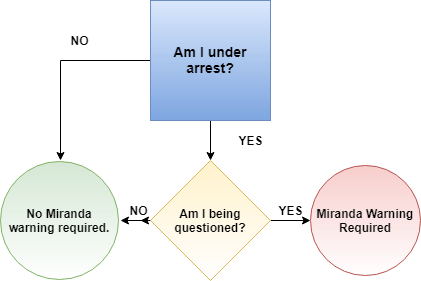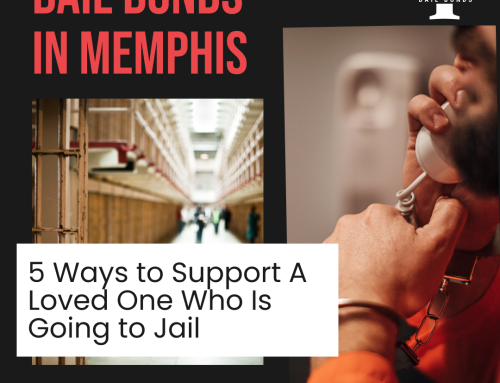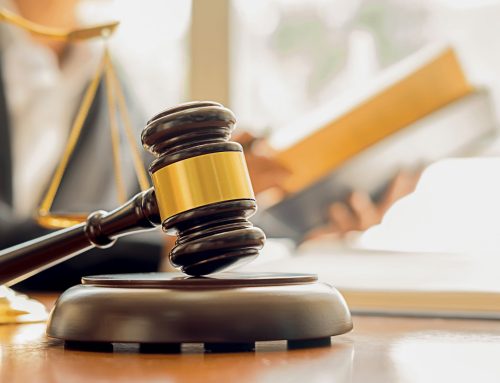About Miranda Rights
“You have the right to remain silent.” Ever heard that before? Every arrest on any self-respecting cop show includes those words, but did you know that the phrase is critical to the legality of an arrest?
It begins the Miranda warning, which protects American citizens’ Fifth and Sixth Amendment rights.
The Constitution outlines the right not to say anything self-incriminating, and police read the Miranda warning to the person they are arresting so that person is protected from feeling forced to give information.
Despite the importance of Miranda rights in the legal procedure, many people have no idea what they are entitled to after an arrest.
An arrest can be a stressful experience, and some people say things they regret, unaware of their rights. But if you learn about Miranda rights, you can safeguard your rights if you are ever arrested.
Won’t A Lawyer Take Care of This?
Some people assume that a lawyer or bail bondsman can take care of all of the tricky legality involved in an arrest-after all, that’s what we pay them for, right?
But while it’s true that a lawyer and bail bondsman can help, you are the first line of defense when it comes to your rights.
A little background information could help you if you are ever involved in an arrest. You might not need to understand the history behind the Miranda warning in-depth, but defending your rights is easier if you understand what they are and how to protect them.
After all, knowledge of your rights could be critical to your own safety.
The Constitution Has Your Back
The Constitution’s Bill of Rights makes it clear that every American citizen has certain rights at the time of an arrest and imprisonment. Two of those rights apply directly to the Miranda warning:
The right to remain silent. A person who has been arrested cannot be compelled by violence or any other means to confess to wrongdoing. The right is protected in the Fifth Amendment of the Constitution.
The right to legal counsel and a fair trial. A person who has been arrested deserves a competent attorney to advise and help him or her with the legal process. This right is protected in the Sixth Amendment of the Constitution.
You may have learned about the Bill of Rights and the Constitution in your school years, but in the heat and pressure of the moment, it can be easy to forget your Constitutional rights during an arrest. Know that these rights are protected in this country by the courts of law and that you deserve to be protected if you are ever arrested.
Miranda Rights Protect Citizens Today
Although the Constitutional rights to remain silent and to have legal counsel after an arrest have been around since 1791, the Miranda warning (or “Miranda rights”) wasn’t used in arrests until 1966.
A widely publicized Supreme Court ruling brought the Miranda warning into existence after the Constitutional rights of a man named Ernesto Miranda were violated during his arrest. What happened was this: Miranda was arrested on charges of armed robbery, kidnapping, and rape. Immediately after his arrest, police interrogated Miranda, and he began to admit to his crimes.
The problem was that Miranda was entirely unaware of his right to remain silent and to have an attorney. The police didn’t inform him of his rights, and the interrogation took place without a lawyer present. His forced confession was used against him in the legal case, and Miranda was convicted.
The Supreme Court reviewed the case and determined that Miranda’s Constitutional rights had been violated, and he was released. He was later retried and convicted but in a Constitutionally correct way.
Every Aspect of the Miranda Warning Matters
As a result of the Ernesto Miranda case, the Supreme Court ruled that police officers should always read the “Miranda rights” to the person they were arresting.
You should understand every aspect of the Miranda warning because each aspect is critical to your safety. Although the wording varies in different areas of the United States, the gist of the Miranda warning is this:
- You have the right to refuse to answer questions and to remain silent.
- You know that what you tell police can be used against you in court.
- You have the right to speak to a lawyer before speaking to police; the attorney may be present during any questioning conducted by police.
- The court will appoint you an attorney if you cannot afford one.
- You may stop answering questions if you’d like to consult with your lawyer.
The police officer also asks the person being arrested if he or she understands and is prepared to speak to the police. With a firm understanding of Miranda rights, you can better protect yourself, particularly during and following an arrest.
In such a situation, also remember to seek the help of a reputable lawyer and a trustworthy bail bond company like All n One Bail Bonds in Memphis.




![Different Types of Warrants in Tennessee [Quick Guide]](https://allnonebail.com/wp-content/uploads/2024/03/jail-500x383.jpg)

